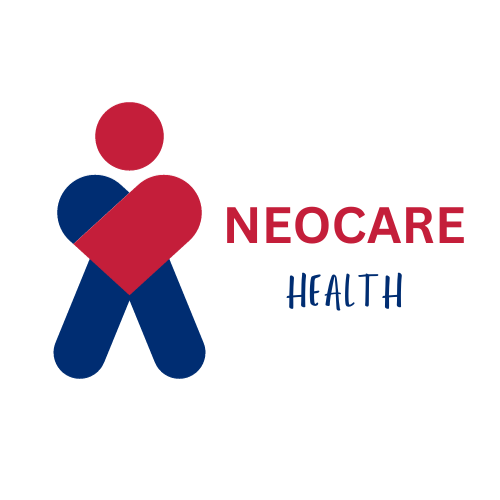Supporting Families through the Neonatal Care Journey: Resources and Coping Strategies
From the moment a baby enters a Neonatal Intensive Care Unit (NICU) or Special Care Nursery (SCN), families embark on a unique and often challenging journey. These medically advanced environments, equipped with life-sustaining technologies like ventilators and IV fluids, become a newborn's first home—particularly for those who arrive prematurely or with health complications. Inside the NICU, a dedicated team of healthcare professionals, including specialist doctors and nurses, collaborate closely, not only to provide specialised care but to facilitate parental involvement in the fragile infancy of their child. The neonatal journey is a transformative experience, punctuated by emotion, resilience, and profound moments of joy and worry.
Recognising the emotional and practical complexities of this experience, this article aims to guide and support families with practical resources and coping strategies tailored specifically to the NICU context. As the narrative unfolds, the reader will gain insights into essential resources available for new families, effective coping strategies for parents and caregivers, the crucial role played by peer and professional support networks, and the intricacies involved in navigating the transition from hospital to home. Emphasising family-centred and integrated care approaches, the article leverages the latest research and expert opinion to empower families as they support their newborn's recovery and growth, highlighting the collective effort necessary to ensure a smooth and informed journey through neonatal care.
Essential Resources for New Families in Neonatal Care
World Health Organisation (WHO), a pivotal entity in global health, offers a comprehensive suite of resources and guidelines that are instrumental for families and healthcare professionals involved in neonatal care. The Health Topics page on WHO is a treasure trove of information pertaining to essential newborn care, addressing aspects such as:
Immediate care at birth
Thermal care to ensure infants are kept at the right temperature
Neonatal resuscitation techniques
Breast milk feeding support and encouragement of breastfeeding
Nurturing care for psychological and developmental health
Infection prevention methodologies
Assessment of health problems in newborns
Recognition of danger signs that signal critical health issues
Framework for timely referral to specialised care when needed
In further assistance to neonatal care, WHO’s Resource page proffers an array of data, including:
Fact sheets that distil complex information into digestible content for parents and professionals
Multimedia elements for varied learning preferences
Publications that delve into the finer points of neonatal health
Tools such as the Essential Newborn Care Course that convey best practices in caring for the newborn
The organisation constantly works in collaboration with global partners to augment the competencies of health workers, perform ground-breaking research, and roll out interventions that continually improve routine care for newborns across the NICU spectrum.
Within New South Wales (NSW), Australia, the Maternity and Neonatal Safety Program addresses quality and systematic safety issues for mothers and infants, providing multifaceted support for healthcare providers and families, while promulgating educational resources to enhance the standards of care. A notable initiative within this framework is the Safer Baby Bundle, focusing on elevating the quality of essential, postnatal care for women and infants. These efforts encompass the delivery of:
Improved screening processes
Structured postnatal visits and checks
Resources to aid in the mental well-being of new mothers
Consistent with WHO’s vision, the advocacy of Kangaroo Mother Care (KMC) is recognised as a transformative innovation. WHO’s backing of KMC comes with a robust recommendation dossier and resources aimed at nurturing preterm or low-birth-weight infants through skin-to-skin contact, supporting both physiological and emotional development.
The Community of Practice (CoNP) serves as a synergistic platform enabling continuous exchange of educational materials and experiences in neonatal care. The emphasis is placed on communities including ALIGNMNH, the Care of the Small and Sick Newborn CoP, and the Global Nursing and Midwifery Global Community of Practice. These groups share a unified goal: the elevation of neonatal care standards worldwide.
Moreover, guidelines originating from WHO and UNICEF that focus on essential newborn care and human resources strategies are key in supporting the caregivers and the neonatal community. An example of targeted support can be seen in initiatives for Aboriginal and Torres Strait Islander peoples, which aim to provide culturally safe healthcare. Specific resources like Get Up & Grow and the Australian Nurse-Family Partnership Program (ANFPP) are tailored to uphold family health effectively.
For parents in search of support, the Pregnancy, Birth and Baby website, funded by an official resource, extends its services to include crucial information on newborn health screening, physical activity guidelines, and counsel on mental well-being. As parents navigate the NICU landscape, access to such thorough and well-organised resources ensures they are better equipped to support their newborn's delicate early stages.
Coping Strategies for Parents and Caregivers
Navigating the emotional landscape of a neonatal intensive care unit (NICU) can be daunting. Parents and caregivers are recommended to establish a daily routine to anchor their days. This includes:
Taking care of personal hygiene with activities such as showering.
Ensuring a balanced diet is maintained and healthy meals are consumed.
Prioritising good sleep practices to aid physical and mental recovery.
Scheduling breaks away from the NICU environment to recharge and reflect.
The support from those who understand the NICU journey is invaluable. Building connections with other NICU families can provide mutual understanding and shared strength. Additionally, seeking professional counselling enables parents to process complex emotions and bolster their coping mechanisms. For caregivers grappling with intense emotions, recognising signs of baby blues or postpartum depression is critical. Persistent or severe symptoms warrant prompt consultation with a healthcare provider.
Friends and family are often willing and able to provide practical support that can alleviate the pressures faced by parents in the NICU. This can include:
Providing meals to ensure nutrition needs are met without the added stress of meal preparation.
Assisting with household chores, offering to watch over older siblings, and managing updates for extended family and friends.
Availing transport services for hospital visits and attending medical meetings can reduce logistical concerns for parents.
Engaging in the care of a NICU baby fosters connection and supports development:
Personalising the NICU space and marking special occasions bring a sense of normalcy and joy amidst challenges.
Participating in the baby's daily routines, such as bathing and changing, enhances parental involvement.
Self-care and mental wellness activities offer a respite for the mind and can include:
Journaling experiences and emotions as a form of therapeutic expression.
Delving into a good book, practicing mindfulness, or meditation to find a calm mental space.
Permitting indulgences like a favourite treat or pastime to maintain a sense of self.
For parents, engaging in kangaroo care, where a baby is held skin-to-skin, and breastfeeding can positively impact the baby's outcomes. These acts of closeness not only support the baby's physiological development but also deepen bonding. Documenting the journey through photographs and journal entries can serve as a poignant record of progress and a tool for reflection. Finally, ensuring self-care by getting adequate nutrition and rest, along with graciously accepting help, is crucial for the well-being of both the caregiver and the baby. Such strategies, integrated conscientiously into the daily routine, can serve as steadying forces in the NICU's emotionally charged atmosphere.
The Role of Peer and Professional Support Networks
Peer support networks provide invaluable assistance to families navigating the NICU experience, complementing the medical and emotional care provided by healthcare professionals. Organisations such as Spoons and the Life’s Little Treasures Foundation (LLTF) are dedicated to serving parents of babies born premature or sick. These groups offer a network of support that caters to the unique needs of these families. Their services include:
Sharing Experiences: Access to a community that thoroughly understands the premature birth experience, allowing parents to share challenges and triumphs with others who have walked similar paths.
Emotional Support: Reduced feelings of anxiety and depression through communal support and validation, ensuring that no one has to endure their journey feeling isolated or misunderstood.
Coping Mechanisms: Improved ability to cope with the situation, gained through the exchange of personal insights, coping strategies, and practical solutions that address everyday challenges in the NICU.
Empowerment: Increased feelings of control over their baby's care, as advice and experiences shared by peers instill confidence and assertiveness when communicating with healthcare teams.
The efficacy of peer support is augmented by professional support networks, which consist of trained healthcare providers, counsellors, and social workers. These professionals lend their expertise to aid families in understanding complex medical information, accessing necessary services, and offering therapeutic support for mental and emotional well-being. The collaboration between peer and professional support networks ensures a comprehensive approach, with each playing a pivotal role in the holistic care of neonatal families.
Support networks go beyond the provision of comfort; they actively encourage self-advocacy and promote resilience among parents. For example, LLTF’s facilitation of peer support groups and the organisation of informational events empower parents with knowledge and communal bonds. These interventions aim to ensure that families enduring the NICU journey do not feel alone, helping them build a toolbox of resources and support that will endure well beyond their hospital stay.
By harnessing the solidarity of peer networks and the knowledge of professionals, parents can navigate the neonatal labyrinth with a fortified spirit, armed with the assurance that they are part of a wider community committed to their family's wellbeing and their newborn's development.
Navigating the Transition Home
In conclusion, our exploration of the neonatal care journey has highlighted the crucial role of resources and coping strategies that support families during a challenging yet transformative time. From the comprehensive guidelines provided by the WHO to the community-driven insights offered by peer support networks, parents are afforded a lifeline—a means to navigate this emotionally charged territory with resilience and hope. We have underscored the invaluable efforts of healthcare professionals and the broader implications of integrating family-centred care into the NICU landscape, recognising its profound impact on recovery and growth for our most vulnerable infants.
As we draw this article to a close, we reiterate the essence of our collective mission: to ensure that no family feels alone in the NICU. While the path may be fraught with uncertainty, the strategies and resources discussed aim to empower, advocate for, and foster a nurturing environment for both the newborn and their caregivers. Let us carry forward the commitment to support, educate, and uplift each family as they embark on this life-affirming journey, reinforcing the message that, through knowledge and community, resilience flourishes.
Conclusion
In the world of neonatal care, family-centered care (FCC) represents a paradigm shift, transforming the NICU experience by actively involving families in the care process. Research indicates that parents who are engaged in FCC units, as equal participants, enjoy numerous benefits:
Enhanced family involvement leads to reduced hospital stays for infants.
Parental participation in FCC units is correlated with improved neurobehavioral outcomes in newborns.
Increased rates of breastfeeding and promotion of infant growth are evident in settings where FCC is practiced.
However, the transition to an FCC model requires a fundamental change in the mindset and behavior of healthcare professionals. This evolution is vital for the successful implementation of FCC, and its impact extends beyond reducing stress levels among parents, distinguishing NICUs from standard care units.
Parents' concerns in the NICU are multiple and complex, involving worries about their infant's diagnosis, the uncertainties of the future, financial burdens, and the daunting duration of hospitalisation. To navigate this challenging environment, many adopt various coping mechanisms. They find solace in spiritual practices, seek comfort in the embrace of family support, or resort to distractions to alleviate their anxieties.
A nationwide Swedish study provides illuminating insights into parental experiences of neonatal care. While overall satisfaction is high, it varies by question and unit, with significant discrepancies noted in categories such as 'participation and involvement.' Notably, parents of extremely preterm infants are less satisfied in this area—suggesting a need for greater attention to the nuances of care for this vulnerable group. Interestingly, despite the negative impact of longer hospital stays on parental experience, the level of care and bed density seem to have minimal effect.
The difference in perception between neonatal care and adult medicine is stark; parents rate neonatal care as better, underscoring the unique challenges and the heightened emotional involvement prevalent in NICUs. While the path ahead calls for ongoing improvements in patient and family engagement, the data resoundingly reaffirms the family's pivotal role in the NICU journey, advocating for a care approach that encompasses the needs and well-being of both the infant and their family.










